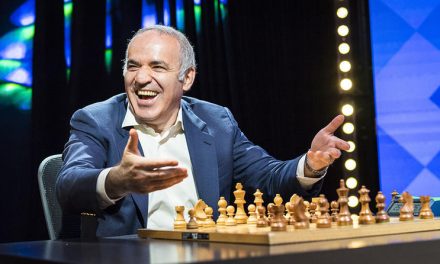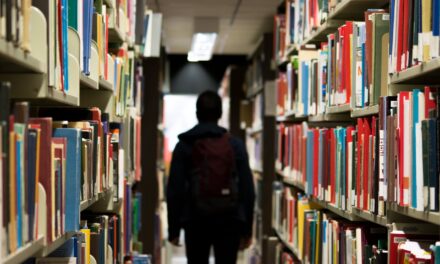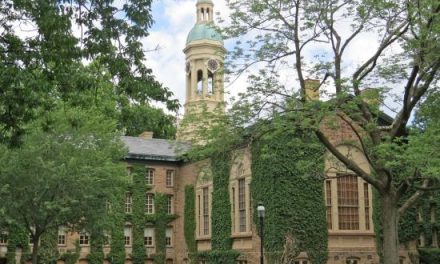 Days ago I was scanning My Left Wing and saw a diary that drew me in, “I Look at All the Lonely People.” The author, Eugene, stated “I’ve never been one to have many close friends . . . I am very, very choosy with who I care to spend my time with, who I open up to.” I thought, “Me too!” I have been very selective all of my life and it has served me well. Eugene’s words peeked my curiosity; thus, I continued.
Days ago I was scanning My Left Wing and saw a diary that drew me in, “I Look at All the Lonely People.” The author, Eugene, stated “I’ve never been one to have many close friends . . . I am very, very choosy with who I care to spend my time with, who I open up to.” I thought, “Me too!” I have been very selective all of my life and it has served me well. Eugene’s words peeked my curiosity; thus, I continued.
As his article expanded, I discovered that he was discussing a recently released study, “Social Isolation in America: Changes in Core Discussion Networks over Two Decades.” This report revealed people in America no longer have the close ties they once did. A quarter of the population has no one they confide in. Most persons are fortunate to have one close friend, perhaps two. Intimacies within families are not what they once were, or at least they are not as they were once believed to be. People in America feel alone and isolated. Interesting; now, I am among the “norm” and yet, simultaneously, still far from it.
- People have a smaller number of confidants in 2004 than they had in 1985.
- In 1985, most persons claimed to have three close friends; now they have two or less.
- Twenty-five percent of the respondents said there was no one that they would turn to in times of trouble.
I think of myself as a loner. I have very close friendships, many have lasted a lifetime. I am interested in people, anyone, and everyone. Still, I am discriminating. I want a genuine closeness or I want none. I am extremely independent, autonomous, and some say I am a free spirit. I need no one. I am not a leader; nor am I a follower. I believe in communities; yet, I do not seek them. I accept that I am a part of a universal village. I am I; I think that is best or at least it is best for me.
However, social scientists and authors of this recently released study might disagree and they have reason to, Professors, Lynn Smith-Lovin, Miller McPherson, and Matthew E. Brashears are concerned that Americans no longer have a sense of community, neighborhood, or kinship. We have become fragmented. These sociologists state a lack inclusion hurts our social and psychological well-being. I agree with this creed.
Still, I prefer my dichotomy of an existence, a separation between seeking support for emotional matters and not for physical. I recognize that each is necessary. I acknowledge community and connections are vital, even if, at times, I do not engage as completely as I might. Communities provide in ways that nothing else can. I share my story to illustrate this belief.
Throughout my life, whether, I had someone to support me when I had a physical need or not, I would not ask for assistance. As I stated, during times of emotional crisis, I would turn everywhere. I absolutely will engage when I am feeling confused. Fortunately, I have cultivated true friends for such occasions. However, physically, I prefer taking care of myself.
Twice in my life, I experienced an injury. On each occasion, I needed the assistance of others. This was difficult for me. I rather not ask for help; nor do I wish to accept it.
I do not believe in accidents. I think everything happens for a reason. At the time of these incidents, I chose to accept that I needed to learn from these experiences of asking for and receiving help. I thought I had, at least a little; however, it took months for me to assess the rationale for this next event.
Years ago, I moved into a condominium. It was my first experience of “home ownership.” I could not afford much and I wanted to stay in the community I loved. I had lived in an apartment in Irvine, California for eight and one half years. I purchased my new home exactly one mile down the road. Prices are high in Orange County, California, particularly in a desirable city such as Irvine. The place I purchased did not have a garage. In this garage-society, I wanted one. Still, I knew, for a time sacrifices must be made.
Shortly after I moved in the Association passed out a poll; it asked whether we, as residents wanted a garage and what would we pay for it. Thirty-nine percent indicated they did want more than the pre-existing carports and the price proposed seemed reasonable. I was among these, the minority. Fifty one percent said no and they had their reasons.
Among my nearest neighbors, most of whom had lived there for well over a decade, the vote was no. We were told that in three years, we would be polled again. Aesthetically, the carports were ugly; nonetheless, I grew to love these. Each day, accidentally, and on purpose, those in the neighborhood would met and greet each other in the carports.
Many of us were on similar schedules. Mike would sit curbside and have a smoke throughout the day. Our homes were on walking paths and did not face a street per se. Therefore, it was natural to use the door closest to the car as an entrance or exit way. Children did this; they brought their friends in through the back door. Neighbor did the same. If they wanted to share a thought, converse of the day, or borrow a cup of sugar, they approached from the rear. The alleyway was a busy thoroughfare.
It did not take long before I appreciated being garage-less. Though I never felt truly close to my neighbors in those first two years, we were far more than cordial.
Then, while less than a mile from home, I was hit hard. I was in a very serious car accident. The Great-Gray-Girl, what some think of as an automobile lost her life, as she worked to save mine. [Oh, the tears flow. She was truly my friend and we were connected.] I was badly injured. I broke my sternum, four ribs, and I reluctantly say there was great damage to my heel. I will not share the details. I do not want that thought to be part of my reality.
What is part of my reality is, I am among the 44 to 50 million, depending on whose numbers you prefer, that does not have health insurance. Nevertheless, I spent days in the hospital. This was an experience in itself and though I was eventually released, I was told I would not be allowed to walk for approximately six months.
Those that know me recognize that my lying in bed was not likely. Still I could not apply any weight to my foot, leg, or heel, and crutches gave me no stability. With the abdominal injuries, the pain was too great. I elected to crawl.
I was housebound and extremely restricted. I lived alone. My father did fly out from the Midwest to help me; however, he could only give me a few days. We wondered; what would I do.
For those not familiar with California, particularly in the megalopolis that is Southern California, people are known for being impersonal. Neighbors do not know those living adjacent to them. I recall at work one day co-workers mused, the only time they saw their neighbors was during an obligatory Christmas gathering. I knew that my experience was different, though I never expected what occurred.
While still in the hospital I contacted a friend of mine. We swam together, almost daily for years; I knew she would miss me if I did not show at the pool. She visited me in the hospital and offered her help. She was more than there for me. Helen took me to the doctors, did all my food shopping, as a retired nurse she was able to teach me to walk again when I was more able. She did so much to assist me in my recovery. However, I would never ask her to play nursemaid in my every waking moment.
My father worried, how would I care for myself? Who would make my meals, feed the kitties, change the litter, just help me to make my life work. One day, just before he needed to return to his home, he was out in the carport. He was on his way to run an errand. My father was entering his car when my neighbor Laura approached him. She asked of me. She knew something was wrong.
While I was in the hospital, Laura noticed friends of mine had come to feed the kitties. My car was gone. She saw me return to the house and observed I was not in the best of conditions. My vehicle never returned; my father stayed, she was concerned and expressed this to my Dad.
My father shared the situation and voiced his fear for my being home alone once he left. Laura said to fear not. She immediately contacted all my neighbors and drew up a plan. The entire block coalesced. For the first month someone fed me breakfast, another lunch, a third gave me dinner. Laura sat with me for hours every evening so that I might bathe safely.
I need to add; I do not eat processed food, none at all. Therefore, preparing meals for me was more than dashing off to McDonald’s. People cooked, cleaned fruit and vegetables. They worked. Laura’s daughter gathered my mail and emptied my trash. Others did other tasks. Each day was an event, a never-ending chain of care. By the second month, I could prepare some meals though not all; dinner was too complex. Mike a noteworthy chef was there to create gourmet delicacies, just for me. Laura retained her post at bath time for three and one half months. Evening time with her family was devoted to me. Heels do not heal quickly.
During my time of need, many of my friends and neighbors did much to help me. They were there for me each and every day in ways I never imagined. Their giving of themselves meant and still means so much! There are no words to express how significant and magnificent this was and is to me. Again, the tears flow.
My father flew in every five or six weeks to assist and relieve others temporarily. There was no money exchanged. Actually for a short time, I tutored Laura’s daughter in math so that I might earn money. I was unable to walk or drive for five months. For all that time, people assisted me. There was never a complaint. Years later, the neighbor experienced another grief. A young man passed; it was unexpected. Again, we all reached out and were there for each other.
I discovered as this study concludes, when people are more connected, as a whole, they feel safer and more secure. Oddly, coming from me, a person can receive comfort without loosing one’s independence. You can still say, yes, please help me, or no, I need to do this myself.
People enjoy helping others, they do not necessarily feel a need to overpower or overwhelm another. From my experience, we all want to give and receive help; however, we may not know how. As society changes, we have fewer exemplars to teach us.
Since 1985, the number of family members in the paid labor force has increased. Women are working in larger numbers. Many children are also employed. So much time is spent away from home; there are few opportunities to form genuine, true, and life long relationships even with family members.
Familial togetherness seems to be a thing of the past. Divorce is pervasive. Children are shipped from one household to another. They do not have a single bed to call their own. Bedtimes and even siblings may vary from week to week. “True” friendships are viable on screens. This takes a toll on the psyche of a young mind. It would weigh heavily on me at any age.
The concept of dinnertime is antiquated. Families no longer feast together daily; some are not even doing a weekly meal in the company of their kin. Rarely do we witness a once traditional pattern, parents, and siblings sitting together while enjoying a meal and each other’s company. This is sad and troublesome. Much can be learned from our relatives when we slowly dine and discuss life together. We glean a sense of who they are; trust grows.
Meals are now eaten on the run, at work, at a desk, while driving; often people eat alone, not necessarily because they want to, but because they feel so alone. Gone are the days when a meal was cooked at home, many sharing in the preparation. Even when a family shares a space and a time for dinner, the menu differs for each individual. Unity is lost. It may seem a little nuance; however, I wonder if it is a reflection of a broader issue.
The character of conversations has changed and this might be another reason Americans perceive a distance between themselves, their blood relatives, and their neighbors. Cell phones, e-mails, and the Internet dominate, in this culture of connectedness. Yet, these might contribute to the disconnect we experience. Tête-à-têtes are chatty. Substance is missing. People have little to no time or experience for genuine friendships. They are flying from one situation to another.
Parents are working. It takes two or more incomes to survive. Thriving is rarely a consideration in today’s workforce. Jobs are at a premium; they are hard to find, and it is a challenge to keep them. Your neighbor or your associate is no longer a friend or a confidant. They are the person that might “steal” your not too well-cemented position at the company. For the most part, be it in friendships, within our families, or even at work, Americans do not have a sense of security or stability. All they know is an overscheduled life style.
We, as Americans sense a need for something. We search. We seek; rarely do we stop long enough to discover, what we longed for all along was there, right in our backyard.
* I am so conflicted; I want to share the names of all those that helped me. Yet, I was hesitant to verbalize the names that I did offer. There are so many of you that gave months of your life to me. I cannot begin to thank you enough!!! I love you all. You are very special beings.
The Initial Inspirations For This Writing . . .
- I Look at All the Lonely People By eugene. My Left Wing. June 23, 2006
- Isolation By Mark Thoma. Economist’s View. June 23, 2006
- Out of The Crooked Timber, By Kieran Healy. Out of The Crooked Timber. June 23, 2006
- “Social Isolation in America: Changes in Core Discussion Networks over Two Decades.” By Miller McPherson, Lynn Smith-Lovin, and Matthew E. Brashears. Duke University and University of Arizona. American Sociological Review. June 2006
Listen to an Interview with co-author of the study, Lynn Smith-Lovin of Duke University
* Social Isolation: Americans Have Fewer Close Confidantes, Debbie Elliott All Things Considered, National Public Radio. June 24, 2006
Read One of My Personal Favorite Writings on Balancing Work and Family
* My Family Leave Act. [Op-Ed] Robert B. Reich. New York Times. November 8, 1996
References For Reflection
- My Left Wing
- A Political Scientist Renews His Alarm At the Erosion of Community Ties, Louis Uchitelle. New York Times. May 6, 2000
- Is Your Circle of Friends Shrinking? Survey: Americans Have Fewer Confidants Than In The Past. CBS News. June 23, 2006
- Social isolation growing in U.S., study finds By Shankar Vedantam. Washington Post. June 23, 2006
- Circle of Friends American Sociological Association. June 2006
- Study: Americans’ circle of close friends, confidants shrinking By Amanda Beck. Reuters. MSNBC News.
- Social Isolation in America: Changes in Core Discussion Networks over Two Decades, By Miller McPherson, [Duke University,] Lynn Smith-Lovin, [Duke University,] and Matthew E. Brashears, [University of Arizona and Duke University,] American Sociological Review, June 2006
- Divorce, nontraditional families, and its consequences for children By Rhona Mahony. Stanford. November 20, 1997
- Children and Divorce. American Academy of Child and Adolescent Psychiatry. Updated July 2004
- A New Competitive Sport: Grooming the Child Athlete, By Jennifer Alsever. New York Times. June 25, 2006
- The Magic of the Family Meal, By Nancy Gibbs. Time. Vol.167, Issue 24; page 50. June 12, 2006.
- Technology; Critics are picking apart a professor’s study that linked Internet use to loneliness and depression. By Denise Caruso. New York Times. September 14, 1998
- Technology leaves teens speechless; Text-messaging is wiping out the art of conversation, By Olivia Barker. USA Today. May 30, 2006
- Are kids too plugged in? CNN News. Monday, March 20, 2006
- Are Kids Too Plugged In? By Ian Jukes. The Committed Sardine Blog. March 20, 2006* Sociology at Duke University
- Bowling Alone: The Collapse and Revival of American Community By Robert D. Putnam. Simon & Schuster. 2000
- the uncertain future of meal preparation retail By James Richardson, PhD and Kirk Cornell, PhD. The Hartman Group. October 20, 2005
- What is the Real story on Job Insecurity? Future of Work
- Competition gears up; As more firms advance the notion that workers must stay ahead in order to stay on, officemates joust in ways that can be cooperative – or cutting. By Jennifer LeClaire. Christian Science Monitor. July 21, 2003
- American Sociological Association. Journals.
Betsy L. Angert Be-Think







